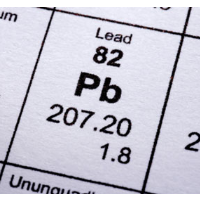Hunt for Exide Lead Contamination Widens; Cleanup Cost Estimates Grow

Turns out the Exide Technologies battery recycling plant in Vernon, five miles from downtown Los Angeles, that has been allegedly polluting the immediate neighborhood with lead and arsenic for decades may also have been a threat to 10,000 homes within one and three-quarter miles.
New testing will ensue, according to California’s Department of Toxic Substances Control (DTSC), after the latest neighborhood tests long clamored for by area residents turned up persistent levels of toxic materials at farther distances than expected. The major concern is lead, a powerful neurtoxin that can lower IQs, cause lower intelligence and learning disabilities.
Lead has been linked to criminal behavior, stunted growth, seizures and a range of maladies, and is especially dangerous for young children and pregnant women. There is no safe level of exposure.
Oversight of the plant by regulators has been lax. The plant, built in 1922 and purchased by Exide in 2000, operated with a temporary permit for 33 years while regularly being fined and disciplined for emissions in the air, soil and water that violated environmental law.
Additional testing could cost $150 million, sources told the San Gabriel Valley Tribune, which is significant since the bankrupt Exide agreed in March to keep the shuttered plant closed and pay $38.6 million to clean up the site. Exide also paid $9 million for the residential cleanup.
“We are looking to put a funding stream in place to get started. Then we will recover the cost and pay ourselves back as we go,” DTSC Director Barbara Lee said.
The agreement reached with the U.S. Attorneys Office let Exide and its employees off the hook for any criminal charges. Exide disputed the latest findings. The company said in a statement that there is no residential pollution from the plant and blamed lead findings on other sources.
The department is already cleaning up 219 properties near the 15-acre facility which, before its closure, recycled lead-bearing scrap materials and 23,000 to 41,000 automotive batteries daily as a cheap source of lead for its battery-making facilities. Two-thirds are done.
But the new, expanded testing will take a while to get going because none of the tests found lead levels above 1,200 parts per million at home where elderly people or children live. That’s the standard for triggering emergency cleanups.
Consumer Watchdog’s Liz Tucker told KPCC she was “appalled” by the delay and Gladys Limon, a lawyer with the Communities for a Better Environment, said, “I think we are looking at one of the largest public health disasters in the state’s history.” Tucker estimated cleanup and closure costs would end up around $200 million.
Neighbors of the plant complained about being ill for years and the company was regularly in trouble with regulators but kept on polluting until a South Coast Air Quality Management District (AQMD) report in 2013 said 110,000 people were at higher risk of cancer because of the plant's arsenic emissions.
–Ken Broder
To Learn More:
Testing near Vernon Battery Plant May Expand to 10,000 Homes (by Steve Scauzillo, San Gabriel Valley Tribune)
Exide Update: Lead-Based Pollution May Have Reached Thousands of Homes (by Molly Peterson, KPCC)
Lead Contamination Found at Up to 10,000 Southeast L.A. County Homes (by Tony Barboza, Los Angeles Times)
90 Years Is Enough: State Inks Deal to Close Exide’s Toxic Battery Plant near Downtown L.A. (by Ken Broder, AllGov California)
Closure and Cleanup of Exide Technologies Facility in Vernon (Department of Toxic Substances Control) (pdf)
- Top Stories
- Controversies
- Where is the Money Going?
- California and the Nation
- Appointments and Resignations
- Unusual News
- Latest News
- California Forbids U.S. Immigration Agents from Pretending to be Police
- California Lawmakers Urged to Strip “Self-Dealing” Tax Board of Its Duties
- Big Oil’s Grip on California
- Santa Cruz Police See Homeland Security Betrayal in Use of Gang Roundup as Cover for Immigration Raid
- Oil Companies Face Deadline to Stop Polluting California Groundwater





